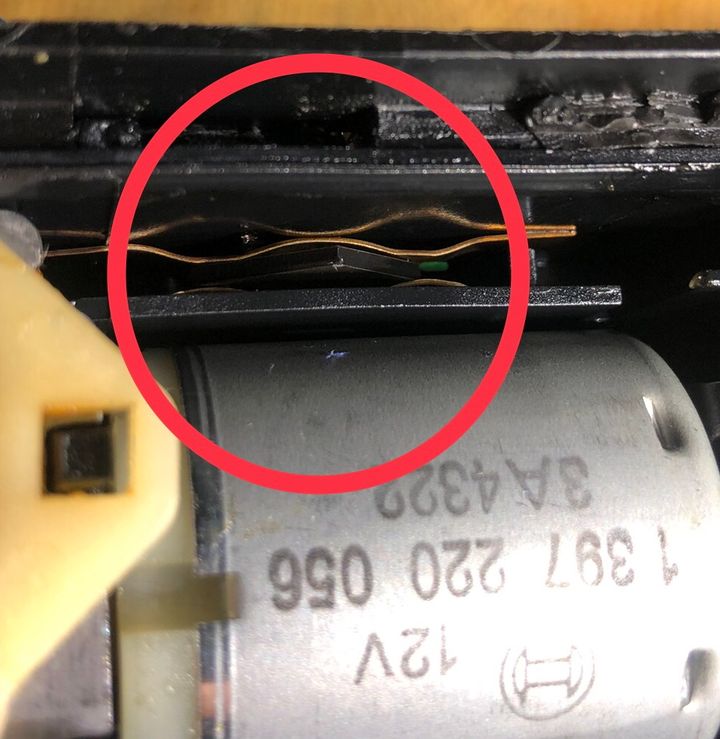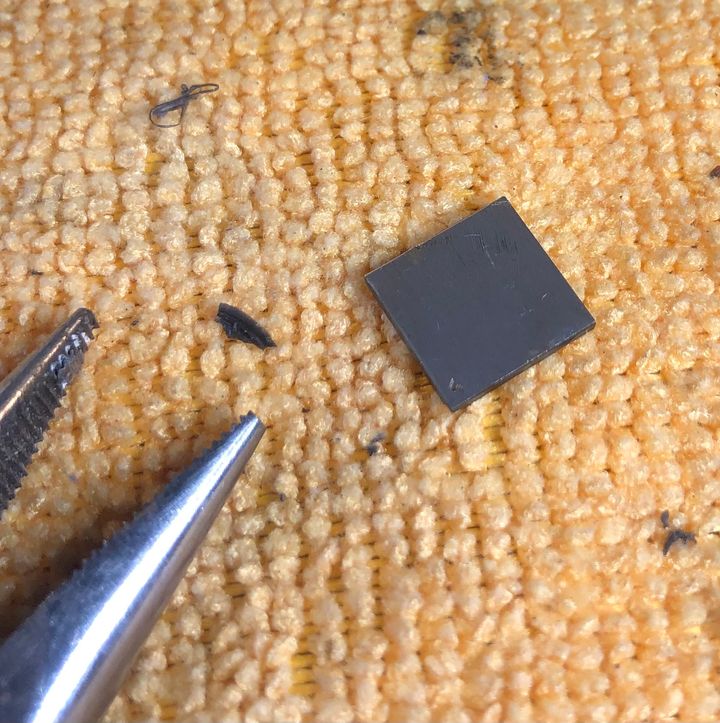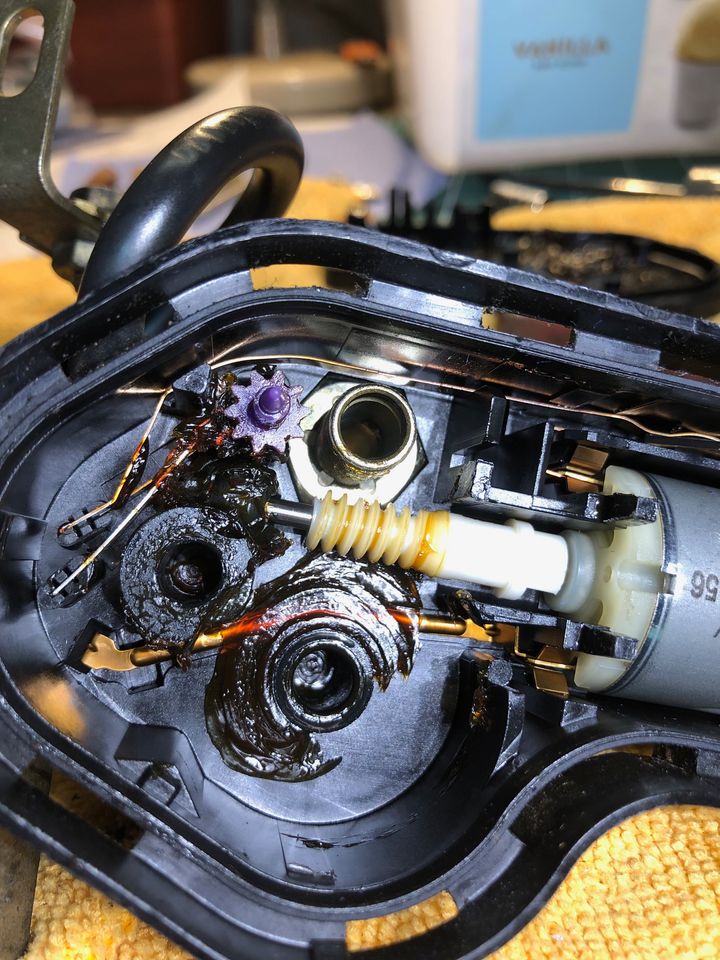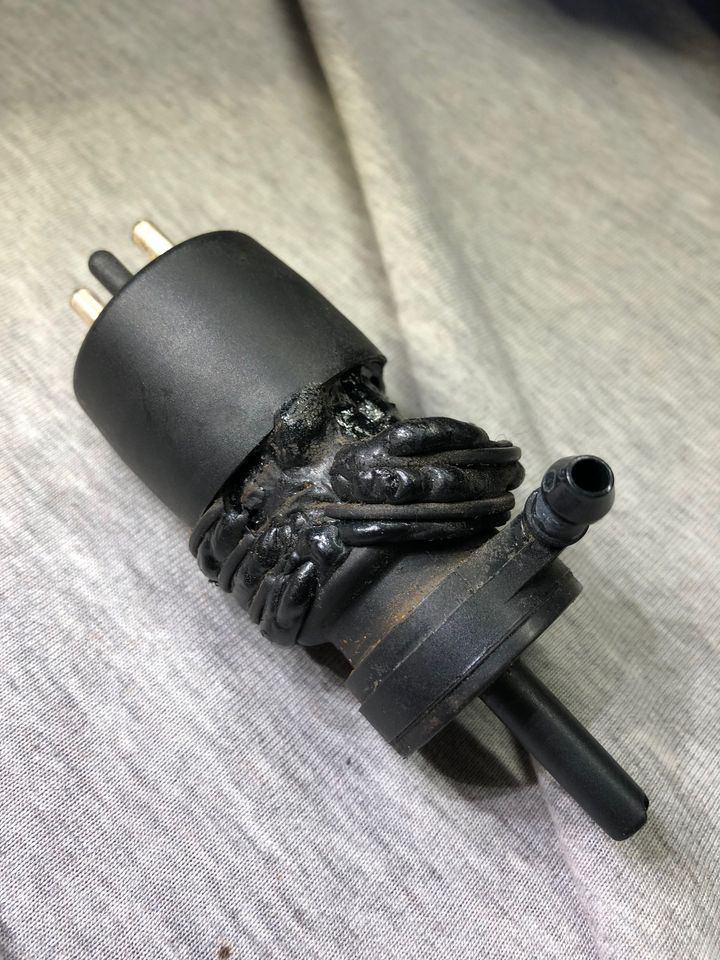Thermal breaker "wafer" for headlight wash motor
Discussion
I need (I think) to replace the "wafer" thermal contact breaker in a headlight wash/wipe motor assembly.
I am having trouble finding anything similar and have exhausted my Google search ability.
It's a square with sides about 1cm long. Any chance anyone knows what I am going on about and can help? Thank you.
The alternative is to wedge a piece of wire between the contacts but I am currently reluctant to do that.



I am having trouble finding anything similar and have exhausted my Google search ability.
It's a square with sides about 1cm long. Any chance anyone knows what I am going on about and can help? Thank you.
The alternative is to wedge a piece of wire between the contacts but I am currently reluctant to do that.
Edited by Hereward on Monday 26th August 10:43
Start at the beginning, why do you need (you think) to replace it?
What is the problem you are having?
ETA.
I ask because I can't see how what looks like a plastic square with no electrical connections can be what you are describing as a thermal cut out.
What is the problem you are having?
ETA.
I ask because I can't see how what looks like a plastic square with no electrical connections can be what you are describing as a thermal cut out.
Edited by E-bmw on Monday 26th August 11:47
E-bmw said:
Start at the beginning, why do you need (you think) to replace it?
What is the problem you are having?
ETA.
I ask because I can't see how what looks like a plastic square with no electrical connections can be what you are describing as a thermal cut out.
Sorry, the pics are not greatly helpful.What is the problem you are having?
ETA.
I ask because I can't see how what looks like a plastic square with no electrical connections can be what you are describing as a thermal cut out.
Problem is weak/intermittent O/S headlight wash-wipe on a 1996 Merc SL.
It's not plastic, it's a thermistor comprised of two metal sheets that sandwich a conductive material. This wedges between two metal contacts to form the electrical circuit. Although it has Continuity I am not sure what resistance value it should be (and don't want to tear apart the near side one to compare). When I substitute it with a piece of wire the unit runs fine but I am reluctant to bypass a thermal safety feature.
There is no part number and the Mercedes solution is a whole new assembly for 350 quid.
Cheers.
EDIT: It's a Positive Temperature Coefficient Thermistor. Now I have to try and find a suitable replacement.
Edited by Hereward on Monday 26th August 18:03
I'd tackle the problem electrically.
If the problem is intermittent, either this component is heating up and cooling down very quickly, or it is not a heat related failure. Check the condition of the contacts. For example, it's pretty common for copper contacts that have got hot to lose their tension due to annealing. This can cause electrical problems due to the reduced contact force.
What resistance does it have when it's at room temperature?
It would be easy enough to connect a small gauge wire to each side of this component and measure the voltage drop across it when it is working normally and when the problem happens. This would pretty quickly tell you whether this component was causing the problem.
I expect the thermister is intended as an overload detector so that the wiper doesn't stay powered up long term if it jams mechanically - since it has a self-parking circuit, the driver can't simply turn it off. But the main purpose of that would be to protect the motor from burning out. If you have to replace the whole assembly then it doesn't particularly matter whether the motor burned out.
If the problem is intermittent, either this component is heating up and cooling down very quickly, or it is not a heat related failure. Check the condition of the contacts. For example, it's pretty common for copper contacts that have got hot to lose their tension due to annealing. This can cause electrical problems due to the reduced contact force.
What resistance does it have when it's at room temperature?
It would be easy enough to connect a small gauge wire to each side of this component and measure the voltage drop across it when it is working normally and when the problem happens. This would pretty quickly tell you whether this component was causing the problem.
I expect the thermister is intended as an overload detector so that the wiper doesn't stay powered up long term if it jams mechanically - since it has a self-parking circuit, the driver can't simply turn it off. But the main purpose of that would be to protect the motor from burning out. If you have to replace the whole assembly then it doesn't particularly matter whether the motor burned out.
Hereward said:
Cheers. There are definitely strange things afoot. The headlight wash unit also powers the washer pump via a DIN 31b wire...and look at the melted state of the washer pump on the reservoir:

That will have been run dry for a significant amount of time to do that sort of damage.Or could even be somebodies attempt at a glue repair at some point.
Hereward said:
look at the melted state of the washer pump on the reservoir:
That looks melted, in which case it's hard to imagine it still works. Does it normally power on with the wipers? If that's stalled then it might be taking a lot of current and perhaps tripping the wiper motor overheat protection.Yep, melted and smells of burnt plastic and I assume it's the root cause of my issues. New one on the way.
It's powered by the headlightwash wiper circuit via DIN 53c (not 31b). Once I have found a replacement thermistor I will put everything back together and watch it all like a hawk.
It's powered by the headlight
Edited by Hereward on Tuesday 27th August 13:12
Gassing Station | Home Mechanics | Top of Page | What's New | My Stuff



